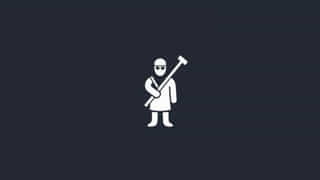Make A Sentence With Clansmen
Learning how to use the word ‘clansmen’ in a sentence is an important step in building stronger vocabulary and understanding the cultural and historical context behind the word. Clansmen refers to male members of a clan, which is a group of people united by kinship or common ancestry. It is often used in historical or cultural discussions, particularly in reference to Scottish heritage, but it can also appear in fictional and modern settings. Using this word correctly requires a basic understanding of what a clan is and how its members are connected. This topic provides explanations, sentence examples, and related expressions to help you master the use of the word ‘clansmen.’
Understanding the Word ‘Clansmen’
The term ‘clansmen’ is the plural of ‘clansman.’ It combines the word clan, meaning a close-knit group of interrelated families or people, with man, implying a male member. Although the term is most commonly associated with Scottish culture, where clans have played an important historical role, it can also be used in broader contexts to describe loyalty, unity, and shared heritage among men in a group.
Key Features of the Word ‘Clansmen’
- Part of Speech: Noun (plural)
- Gender Specific: Refers to male members of a clan
- Related Term: Clanswoman (female member)
- Contexts: Historical, cultural, familial, fictional
Examples of Sentences Using ‘Clansmen’
Simple Sentences
- The clansmen gathered at the base of the hill before the final battle.
- All the clansmen wore their family tartan proudly.
- The chief addressed his loyal clansmen with confidence and strength.
Intermediate Sentences
- During the festival, the clansmen marched in unison to honor their ancestors.
- As the village faced an attack, the clansmen stood united to protect their land.
- The young boy dreamed of one day being respected like the elder clansmen in his community.
Advanced Sentences
- The fierce loyalty of the clansmen to their leader was both admirable and intimidating to outsiders unfamiliar with their customs.
- In the ancient chronicles, the bravery of the clansmen was documented as a symbol of their undying allegiance to the clan’s legacy.
- As political divisions threatened to tear the highlands apart, the chieftain called upon his clansmen to restore peace through unity and honor.
Using ‘Clansmen’ in Different Contexts
Although traditionally tied to Scottish culture, clansmen can appear in various narratives, from historical fiction to fantasy literature. Understanding the tone and setting helps determine when and how to use it effectively.
Historical Context
In Scottish history, clans were essential social units, each with its own tartan, motto, and leader. Clansmen would have duties such as defending territory, attending gatherings, and supporting their clan chief. Example:
In 1746, the clansmen fought valiantly at the Battle of Culloden, defending their homeland from British forces.
Fictional and Fantasy Context
In modern literature, games, and movies, the term may refer to warriors or tribal members who live according to traditional customs. Example:
The northern tribes’ clansmen wielded axes and shields made from dragonhide, defending the borders of their mystical land.
Family and Community Context
Sometimes, clansmen can refer more loosely to close male relatives or members of a close-knit community. While less formal, it can still convey a sense of loyalty and shared heritage. Example:
Every year, the clansmen of our family gather to celebrate the legacy of our great-grandfather.
Common Mistakes When Using ‘Clansmen’
To avoid confusion, it’s important not to misuse or misinterpret the word. Here are a few mistakes learners often make:
- Using it to refer to both genders: Clansmen is male-specific. Use clanswomen or clan members for mixed-gender groups.
- Using it outside of a group or clan context: Avoid using it to describe random people; the word implies a specific connection or bond.
- Confusing it with unrelated modern groups: Always consider the cultural or historical context to ensure the meaning is appropriate.
Related Words and Phrases
To broaden your vocabulary and expression, here are some related words:
- Clan: A group of related families
- Tribesmen: Members of a tribe, often used similarly
- Chieftain: The leader of a clan or tribe
- Kin: Family or relatives
- Allegiance: Loyalty to a group or leader
How to Practice Making Sentences with ‘Clansmen’
One of the most effective ways to learn how to use new vocabulary is by practicing regularly. Here are some helpful tips to improve your sentence-building skills:
- Write daily journal entriesusing clansmen in different contexts.
- Create your own fictional storyset in a world where clansmen play an important role.
- Translate historical textsthat include the word clansmen to understand its use.
- Use flashcardsthat include the word and a sample sentence.
Why It’s Useful to Learn the Word ‘Clansmen’
Understanding the word ‘clansmen’ helps learners access a broader range of English texts, especially those related to history, literature, and cultural studies. It builds deeper comprehension of relationships, group identity, and traditional values as portrayed in both fiction and non-fiction. Mastery of such words makes your English sound more natural, especially in storytelling or historical analysis.
Benefits of Vocabulary Expansion
- Enhances your writing with more precise and culturally rich words
- Improves your ability to read and understand historical documents
- Allows you to express complex group relationships clearly
Learning to make a sentence with clansmen is more than just understanding its definition it involves appreciating the culture, unity, and identity the word represents. Whether you’re writing a historical essay, crafting a fantasy novel, or simply expanding your English vocabulary, using clansmen effectively will enrich your language skills and allow for deeper expression. Keep practicing with new sentences and explore more words that help you describe human connections and traditions in meaningful ways.
